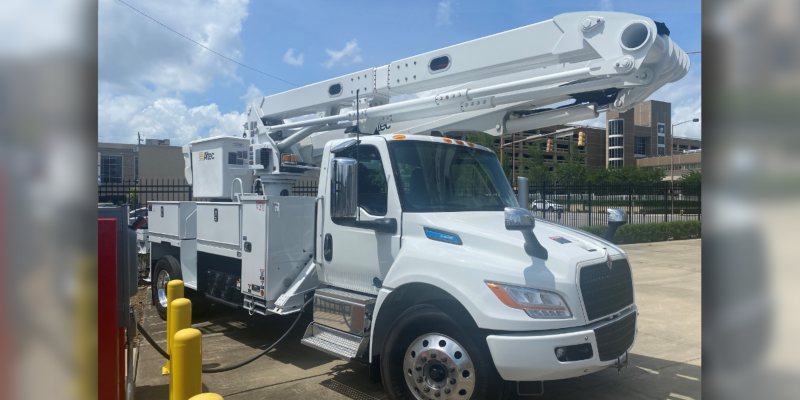Clean Heavy-Duty Vehicles Program Could Benefit Co-ops

This article was updated to remove the mention that the Clean Heavy-Duty Vehicles Program could fund electric cooperatives purchase of electric bucket trucks. The EPA released the list of eligible entities in the Notice of Funding Opporutnity on April 24, 2024.
Since the Inflation Reduction Act was signed into law, there have been numerous federally funded programs encouraging the adoption of electric vehicles. One new program could be used to replace existing cooperative vehicles such as bucket trucks.
The main goal of the Environmental Protection Agency’s (EPA) Clean Heavy-Duty Vehicles Program is to replace current heavy-duty vehicles with zero-emission vehicles (ZEVs), expand ZEV charging stations and train workers. This program has received $1 billion in funding.
“It’s worth noting that this initiative focuses on areas struggling with meeting National Ambient Air Quality Standards,” CFC Director of Utility Research & Policy Brian Sloboda said. “At least $400 million will be used to fund projects in these areas.”
This funding will help replace non-zero-emission Class 6 and 7 heavy-duty vehicles with ZEVs. The program also covers costs for ZEV infrastructure, workforce training and project implementation.
“EPA’s list of eligible vehicles for funding include many common trucks and vans,” Sloboda said. “Eligible vehicles include school buses, garbage trucks, transit buses, delivery trucks and other box trucks. Unlike the EPA’s clean school bus program, this grant won’t cover the entire vehicle cost.”
While the EPA is finalizing program specifics, including the Notice of Funding Opportunity expected in spring 2024, interested parties should get ready for the application process. This involves talking with utilities, school boards and stakeholders for smooth coordination and alignment.
“Applicants should inform their electric utility if they are applying for this grant,” Sloboda explained. “The utility doesn’t need to agree to anything or provide cost information yet. Those seeking battery-electric vehicles will get a Utility Partnership Template from the EPA to collaborate on infrastructure planning and feasibility.”
The program details are still being worked out by the EPA. During the EPA’s clean school bus grant program, many cooperatives reached out to school districts in their areas to inform them about the program. This program offers a similar opportunity for engagement since eligible applicants could include schools, government agencies, commercial fleet operators, small businesses, etc.
“It could also be productive to reach out to vehicle manufacturers to understand pricing and delivery timelines prior to EPA releasing the full funding announcement,” Sloboda said. “It is unclear how long applicants will have to develop an application or how detailed an application will be. Early conversations can help mitigate grid impacts by allowing time for planning and education. This program highlights the crucial role of electric cooperatives in advancing clean energy, engaging with commercial members and fostering partnerships to bring about meaningful change in communities.”
More information may be found at https://www.epa.gov/clean-heavy-duty-vehicles-program.
